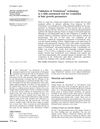85 citations,
January 2002 in “Dermatologic Clinics” Lasers and intense pulsed light can safely and effectively remove hair by targeting hair follicles.
 271 citations,
December 2005 in “New England journal of medicine/The New England journal of medicine”
271 citations,
December 2005 in “New England journal of medicine/The New England journal of medicine” The document likely offers guidance on treating a woman's excessive hair growth, considering her symptoms and obesity.
514 citations,
February 2011 in “International journal of women's health” Different treatments for PCOS focus on the specific symptoms, with weight loss and lifestyle changes being important.
 August 2022 in “IntechOpen eBooks”
August 2022 in “IntechOpen eBooks” Congenital Adrenal Hyperplasia is a rare inherited disease causing hormone imbalances, affecting growth, fertility, and heart health, diagnosed through blood tests and treated with medication and lifestyle changes.
 7 citations,
July 2011 in “Survey of Ophthalmology”
7 citations,
July 2011 in “Survey of Ophthalmology” The document concludes that periocular hair disorders have various causes and treatments, and proper evaluation by specialists is important for management and prognosis.
 May 2019 in “Paediatrics and child health”
May 2019 in “Paediatrics and child health” The document concludes that personalized treatment, including lifestyle changes and medication, is essential for managing PCOS in teenagers, while also addressing their psychological well-being.
 31 citations,
May 2012 in “European Journal of Dermatology”
31 citations,
May 2012 in “European Journal of Dermatology” Menopause affects hair and skin; more research needed for treatment.
 January 2018 in “Springer eBooks”
January 2018 in “Springer eBooks” Different races and genders have unique skin and hair issues, requiring specialized care and more research for effective treatment.
 47 citations,
August 2000 in “Endocrine Reviews”
47 citations,
August 2000 in “Endocrine Reviews” The document concludes that more research is needed to understand excessive hair growth in women with normal hormone levels and regular ovulation.
 22 citations,
July 2003 in “Military medicine”
22 citations,
July 2003 in “Military medicine” New treatments are available for managing ingrown hair inflammation.
 12 citations,
May 2005 in “Current obstetrics and gynaecology/Current obstetrics & gynaecology”
12 citations,
May 2005 in “Current obstetrics and gynaecology/Current obstetrics & gynaecology” Hirsutism is too much hair growth in women like the pattern in men, often caused by high male hormones, and can be treated with hormone control and hair removal methods.
 4 citations,
July 2021 in “Dermatology and therapy”
4 citations,
July 2021 in “Dermatology and therapy” Hormone therapy increases facial and body hair in transgender men, while hair removal improves well-being in transgender women, but cost is a barrier as insurance often doesn't cover it. Dermatologists can use various treatments for these hair issues.
3 citations,
January 2000 in “Current Medical Research and Opinion” Eflornithine HCl 13.9% cream is safe for skin use with mild, temporary irritation.
 27 citations,
January 2001 in “Endocrine Practice”
27 citations,
January 2001 in “Endocrine Practice” Finasteride cream reduces hair growth in women with hirsutism, but more research needed.
 12 citations,
December 2009 in “Amino Acids”
12 citations,
December 2009 in “Amino Acids” Putting α-methylspermidine on mouse skin can start hair growth.
 3 citations,
January 2007 in “Elsevier eBooks”
3 citations,
January 2007 in “Elsevier eBooks” The document concludes that individualized treatment and lifestyle changes are important for managing menopause symptoms and health risks.
 2 citations,
September 2009 in “Nurse Prescribing”
2 citations,
September 2009 in “Nurse Prescribing” PCOS affects many women, causing various symptoms and health risks, and is managed through lifestyle changes, medication, and support groups.
 October 2018 in “Springer eBooks”
October 2018 in “Springer eBooks” The document concludes that various hair disorders have different treatments, including medication, surgery, and addressing underlying causes.
 September 2010 in “Advances in Dermatology and Allergology/Postępy Dermatologii i Alergologii”
September 2010 in “Advances in Dermatology and Allergology/Postępy Dermatologii i Alergologii” TrichoScan is reliable for counting and measuring hair density but may not accurately assess hair types in women with hair loss.
 38 citations,
May 2009 in “European journal of dermatology/EJD. European journal of dermatology”
38 citations,
May 2009 in “European journal of dermatology/EJD. European journal of dermatology” TrichoScan® is a reliable tool for measuring hair growth, providing quicker and more consistent results than manual methods.
 1 citations,
November 2014
1 citations,
November 2014 The document explains hair and nail biology, common hair loss conditions and treatments, oral and genital skin diseases, and the risks and treatments associated with squamous cell carcinoma.
 May 2006 in “Women's Health Medicine”
May 2006 in “Women's Health Medicine” Excessive hair growth in women, often from high androgen levels, is usually caused by PCOS, and can be treated with hair removal, medication, and possibly weight loss.
 1 citations,
December 2010 in “InnovAiT”
1 citations,
December 2010 in “InnovAiT” The document concludes that accurate diagnosis and appropriate management are crucial for treating various hair disorders, which have significant psychological impacts.
 18 citations,
December 2016 in “Phytomedicine”
18 citations,
December 2016 in “Phytomedicine” Curcuma aeruginosa essential oil effectively reduces hair growth and lightens underarm skin.
 23 citations,
December 2013 in “Regenerative Medicine”
23 citations,
December 2013 in “Regenerative Medicine” Hair follicle culture helps develop new treatments for hair loss.
 1 citations,
April 2020 in “Clinical, Cosmetic and Investigational Dermatology”
1 citations,
April 2020 in “Clinical, Cosmetic and Investigational Dermatology” Acyclovir cream may slow down hair growth, suggesting it could be a new treatment for excessive hairiness.

Tailored nonsurgical cosmetic procedures are crucial for safely treating diverse skin types, especially skin of color.
 2 citations,
June 2009 in “The Nurse practitioner”
2 citations,
June 2009 in “The Nurse practitioner” Doctors should recognize and treat PCOS early in primary care to manage symptoms and lower risk of other health issues.
 4 citations,
September 2014 in “Elsevier eBooks”
4 citations,
September 2014 in “Elsevier eBooks” Use some skin medications with caution during pregnancy; avoid strong steroids, certain eczema treatments, and systemic retinoids, but many topical treatments and nasal sprays are safe.
 13 citations,
January 2014 in “Aesthetic Surgery Journal”
13 citations,
January 2014 in “Aesthetic Surgery Journal” Cyperus rotundus oil effectively reduces unwanted hair without side effects.


























